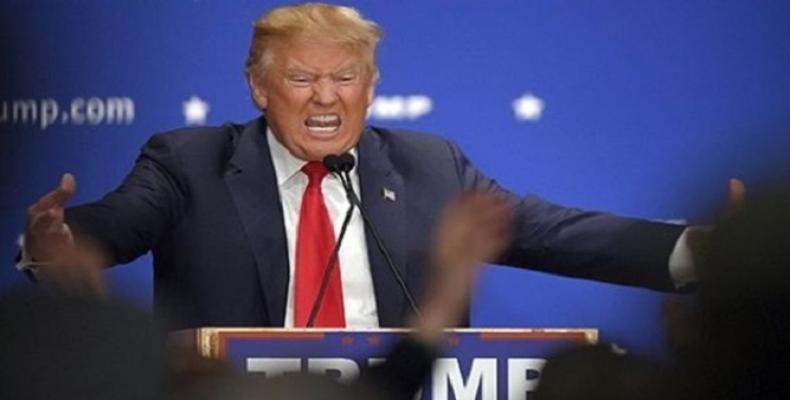Washington, February 14 (RHC)-- The U.S. Congress will not support military intervention in Venezuela despite hints by President Donald Trump that such action had not been ruled out, the Democratic chairman of the House Foreign Affairs Committee said on Wednesday.
"I do worry about the president's saber rattling, his hints that U.S. military intervention remains an option. I want to make clear to our witnesses and to anyone else watching: U.S. military intervention is not an option," U.S. Representative Eliot Engel said at the opening of a hearing the OPEC nation.
Under the U.S. Constitution, Congress has to approve foreign military action. Engel also warned about the possible effects on the Venezuelan people of U.S. sanctions on state oil company PDVSA. The United States in January imposed sanctions aimed at limiting President Nicolas Maduro's access to oil revenue.
Testifying at the hearing on Capital Hill, Trump's pick to lead U.S. efforts on Venezuela, former U.S. diplomat and convicted war criminal Elliott Abrams, said Washington would keep up pressure on Maduro and his inner circle by "a variety of means." And he added: "We will also provide off-ramps to those who will do what is right for the Venezuelan people."
Abrams drew intermittent protests at the start of the hearing. "You are a convicted criminal!" one man shouted before being escorted out of the room. Abrams, assistant secretary of state during the administration of former U.S. President Ronald Reagan, was convicted in 1991 on two misdemeanor counts of withholding information from Congress during the Iran-Contra scandal. He was later pardoned by President George H. W. Bush.
The United States and its right-wing allies in Latin America have come out in support of a right-wing coup attempt against the Venezuelan government of President Nicolas Maduro after they supported a decision by opposition lawmaker, named Juan Guaido, to declare himself an “interim president” of Venezuela on January 23rd in violation of the country’s constitution.
In return, Maduro has repeatedly called for the restoration of talks between his government and the opposition in order to maintain peace and avoid a U.S.-backed coup, or even military intervention by the United States in favor of removing him and placing an un-elected right-wing government.
Guiado and his allies Trump, U.S. Secretary of State Mike Pompeo and his National Security adviser have so far responded to such calls by escalation and rejection of any dialogue. They continue to call for the military to intervene, while sources in the United States have revealed that Trump is “seriously considering” military intervention into Venezuela if Maduro does not step down.
To further the pressure, the United States imposed harsh economic sanction on the Venezuelan oil industry and its national oil company, while also blocking the bank accounts of the Venezuelan state in the United States, vowing to only remove such restrictions when Guiado achieves control of the state institutions.
U.S. congress rejects Trump's warmongering and military intervention in Venezuela


